Ghanaian healthtech mPharma has secured a new strategic investment from Growth Investment Partners (GIP) Ghana, an investment platform established by the UK’s development finance institution, British International Investment (BII).
The new funding, the value of which was not disclosed, comes at a pivotal moment for the company. It follows a significant leadership transition, with Kwesi Arhin taking over as CEO. This investment signals a strong vote of confidence from BII, a long-term backer, in the new leadership’s vision for regional expansion.
The capital is earmarked to strengthen mPharma’s operations in Ghana and, most notably, to finance its expansion into Francophone West Africa, with an immediate focus on Togo and Benin.
The Timing Is Everything
mPharma’s announcement arrives during a particularly interesting moment in African healthtech. After the sector’s boom years from 2019-2021—fueled by pandemic urgency and investor enthusiasm—many players have struggled. Some shut down. Others pivoted. The survivors, like mPharma, are doubling down on proven models rather than chasing the next shiny opportunity.
The leadership change adds another layer of intrigue. CEO transitions at venture-backed companies can signal either strategic evolution or internal crisis. In mPharma’s case, the fact that BII—already a shareholder—immediately wrote another check suggests the former. This isn’t a rescue round; it’s a bet on a specific growth strategy under new management.
Kwesi Arhin, the new CEO, inherits a company with significant regional footprint but also one that’s had to navigate the brutal realities of African healthtech: thin margins, complex supply chains, fragmented regulations, and customers with limited purchasing power. His immediate challenge is proving that expansion, not consolidation, is the right move right now.
What mPharma Actually Does (And Why It’s Hard)
For those unfamiliar with mPharma’s model, here’s the simplified version: The company partners with independent pharmacies across Africa through its QualityRx franchise network. These pharmacies get access to mPharma’s inventory management system, bulk purchasing power, and supply chain logistics. In return, mPharma takes a cut of transactions and gains data on pharmaceutical demand patterns.
Think of it as the franchise model applied to healthcare—standardizing operations, leveraging scale for better pricing, and providing technology infrastructure that individual pharmacy owners couldn’t afford on their own.
The value proposition sounds straightforward, but execution is anything but. African pharmaceutical supply chains are notoriously fragmented. Drug quality is inconsistent. Counterfeit medications are rampant. Payment systems are unreliable. Pharmacies operate on razor-thin margins and can’t afford inventory mistakes.
mPharma’s pitch is that by aggregating demand and standardizing operations, it can solve these problems at scale. The franchise owners get better economics; patients get more reliable access to genuine medications at lower prices; mPharma captures value by sitting in the middle of these transactions.
It’s a classic B2B infrastructure play dressed up as healthtech. And for the most part, it seems to have worked—at least in mPharma’s existing markets of Ghana, Nigeria, Kenya, Zambia, and Rwanda.
The Francophone Gamble
Now comes the hard part: Can this model jump linguistic and regulatory borders?
Francophone West Africa—specifically Togo and Benin in mPharma’s immediate sights—operates under different pharmaceutical regulations, import systems, and business cultures than Anglophone countries. The regulatory frameworks are often more centralized, influenced by French colonial legacy and ongoing relationships with France’s pharmaceutical industry.
This isn’t just about translating software into French. It’s about navigating entirely different supply chain ecosystems, regulatory approval processes, and pharmacy ownership structures. In some Francophone markets, pharmacy ownership is more tightly regulated, with requirements around pharmacist licensing that can complicate franchise models.
mPharma will also face entrenched competition. French pharmaceutical distributors have long-standing relationships in these markets. Local pharmacy networks exist. And unlike Ghana or Nigeria, where mPharma had first-mover advantage as a tech-enabled aggregator, Francophone markets may already have players attempting similar models.
The smart money says mPharma knows all this, which is why they’re starting small with Togo and Benin rather than immediately jumping into larger Francophone markets like Côte d’Ivoire or Senegal. These countries are close to Ghana geographically, making supply chain logistics more manageable. They’re also relatively small markets, which limits downside risk if the experiment fails.
If mPharma can crack Togo and Benin, it provides a template for larger Francophone expansion later. If it struggles, the financial exposure is contained.
Why BII Keeps Writing Checks
British International Investment’s continued backing is significant. Development finance institutions like BII aren’t typical VCs—they have longer time horizons, higher risk tolerance, and explicit mandates around development impact alongside financial returns.
BII’s repeated investments in mPharma suggest a few things:
First, the existing portfolio is performing well enough to justify expansion capital. DFIs don’t throw good money after bad; if mPharma’s core operations were struggling, BII would likely be focused on stabilization rather than geographic expansion.
Second, the Francophone expansion aligns with BII’s strategic priorities. Access to essential medicines is a core development goal, and Francophone West Africa remains underserved by healthtech infrastructure compared to Anglophone markets. mPharma’s expansion directly addresses this gap.
Third, BII believes the new CEO can execute. Leadership transitions are risk events, especially at growth-stage companies. The fact that BII moved quickly to fund Arhin’s expansion strategy suggests confidence in his ability to deliver.
Jacob Kholi, CEO and Investment Officer of GIP Ghana, noted that the partnership aligns with GIP’s mission to back businesses providing essential services. He stated that expanding mPharma’s reach in Francophone countries would “increase access to affordable medicines and bolster regional healthcare resilience.”
This is DFI-speak for: “We think this can work commercially while also generating measurable social impact.” The dual mandate matters because it means mPharma has patient capital that can tolerate the messy, slow work of building healthcare infrastructure in difficult markets.
The Regional Consolidation Context
mPharma’s Francophone push also reflects a broader trend in African tech: geographic consolidation around regional champions.
The pan-African startup dream—one company conquering the entire continent—has largely died. Founders and investors now recognize that Africa isn’t one market; it’s 54 countries with wildly different regulations, languages, infrastructure, and consumer behaviors.
The new playbook is regional dominance. Build deep operations in 3-5 adjacent countries, achieve real scale and profitability in those markets, then cautiously expand into neighboring territories with similar characteristics.
mPharma’s West African focus fits this pattern perfectly. Ghana as the home base. Nigeria as the massive market next door. Then carefully expanding into the Francophone countries that share borders and, increasingly, economic integration through ECOWAS.
This is much smarter than trying to simultaneously operate in Ghana, Kenya, Egypt, South Africa, and Morocco—the “spray and pray” approach that burned so much capital in African tech’s boom years.
What Success Looks Like (And What Failure Means)
For mPharma, success in Francophone expansion probably looks like:
Onboarding 50-100 pharmacies in Togo and Benin within 18 months, proving the franchise model works across linguistic and regulatory boundaries.
Achieving positive unit economics faster than in previous markets, by applying lessons learned and avoiding mistakes from earlier expansions.
Building local teams and partnerships that can navigate regulatory approvals, supply chain logistics, and pharmacy relationships without constant intervention from Ghana HQ.
Collecting data and insights that validate a larger Francophone expansion into Côte d’Ivoire, Senegal, or even Central African markets later.
Failure would look like:
Regulatory roadblocks that stall pharmacy onboarding, turning the expansion into an expensive feasibility study.
Inability to replicate the unit economics that work in Anglophone markets, suggesting the model doesn’t translate.
High churn among franchise pharmacies, indicating the value proposition isn’t compelling enough in Francophone contexts.
Distraction from core markets, where competitors could gain ground while mPharma’s attention is divided.
The undisclosed funding amount is frustrating from an analysis perspective—we can’t judge whether mPharma has 18 months or 36 months of runway for this experiment. But the fact that it’s a strategic round from an existing investor, rather than a broader fundraise, suggests it’s probably not a massive check. This is expansion capital, not transformation capital.
The New CEO’s First Test
Kwesi Arhin’s statement that “with GIP’s support, we can continue to improve patient care and ensure equitable access to quality medicines throughout Ghana and Francophone West Africa” is diplomatic and appropriately cautious.
But the subtext matters. This is Arhin’s first major strategic move as CEO, and it’s a bold one. He’s not playing defense or consolidating operations. He’s pushing into new markets with new challenges at a time when many African tech CEOs are focused on survival.
That confidence is either well-founded—based on internal data showing clear opportunity in Francophone markets—or it’s a strategic gamble meant to energize the organization and signal to investors that mPharma isn’t in defensive mode.
Time will tell which it is. If the Togo and Benin expansion succeeds, Arhin establishes credibility as a growth-oriented leader and positions mPharma for a much larger regional footprint. If it struggles, questions will emerge about whether expansion was premature.
The Uncomfortable Truth About African Healthtech
Here’s the reality that mPharma, like every African healthtech company, must confront: healthcare infrastructure businesses are really, really hard to scale profitably.
The margins are thin. The regulatory complexity is high. The customers—whether pharmacies or patients—often have limited ability to pay. The logistics are expensive and unpredictable. The technology is just one piece of a much larger operational puzzle.
This is why so many healthtech startups pivoted away from infrastructure plays and toward higher-margin telemedicine, health insurance, or pharmaceutical e-commerce. Those models are easier to scale and faster to profitability.
mPharma chose the hard road: building physical infrastructure, managing complex supply chains, and franchising independent businesses. It’s capital-intensive, operationally complex, and slow to scale.
But if it works—if mPharma can genuinely improve pharmaceutical access across West Africa while building a profitable business—the impact is enormous. We’re talking about millions of people gaining reliable access to essential medications. We’re talking about reducing counterfeit drugs. We’re talking about making healthcare more affordable and predictable.
That’s the bet BII is making. That’s the vision Arhin is executing. And that’s why this undisclosed funding round, for an expansion into two relatively small Francophone markets, actually matters quite a bit.
What Happens Next
The next 12-18 months will be telling. Watch for:
Pharmacy franchise announcements in Togo and Benin. If mPharma is onboarding partners quickly, the model is translating. If announcements are slow or nonexistent, there’s friction.
Regulatory approvals and partnerships with local health authorities. If mPharma can navigate bureaucracy smoothly, it suggests strong local execution. If there are delays, the expansion will stall.
Follow-on funding announcements. If mPharma raises additional capital within a year, it could signal either strong traction that justifies more aggressive expansion, or challenges that require more runway. Context will matter.
Competitive responses from French pharmaceutical distributors or local pharmacy networks. If mPharma’s entry triggers competitive moves, it validates the market opportunity—but also increases the difficulty of execution.
For now, this is a story about patient capital backing a proven model’s expansion into adjacent markets. It’s not flashy. It won’t generate headlines about billion-dollar valuations or revolutionary technology.
But if Kwesi Arhin and his team can make this work, they’ll have built something rare in African tech: a sustainable infrastructure business that actually improves millions of lives while generating returns for investors.
That’s the real test of healthtech in Africa. Not whether you can raise money or generate hype, but whether you can solve hard problems profitably at scale.
mPharma just got fresh capital to prove it can.







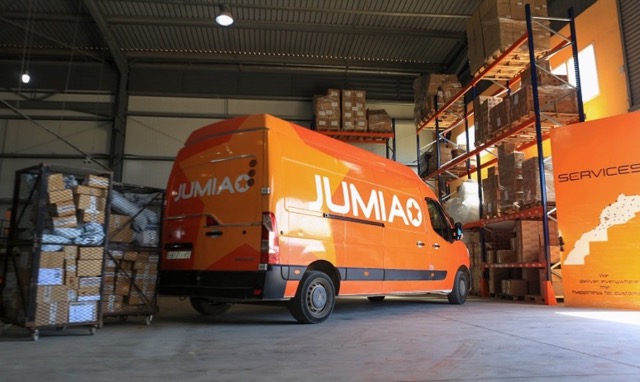

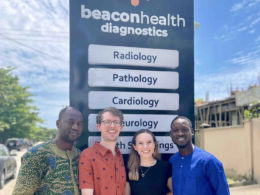
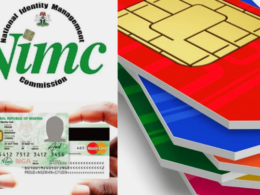
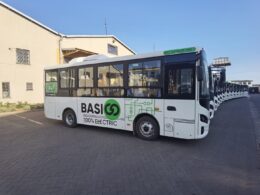
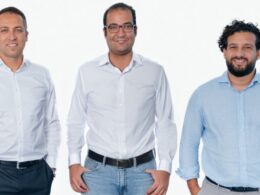
Comments 2